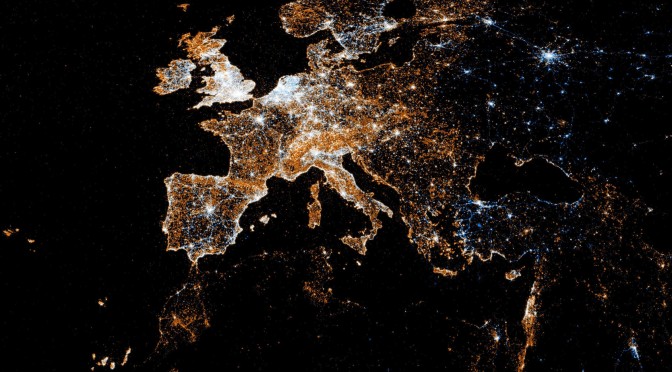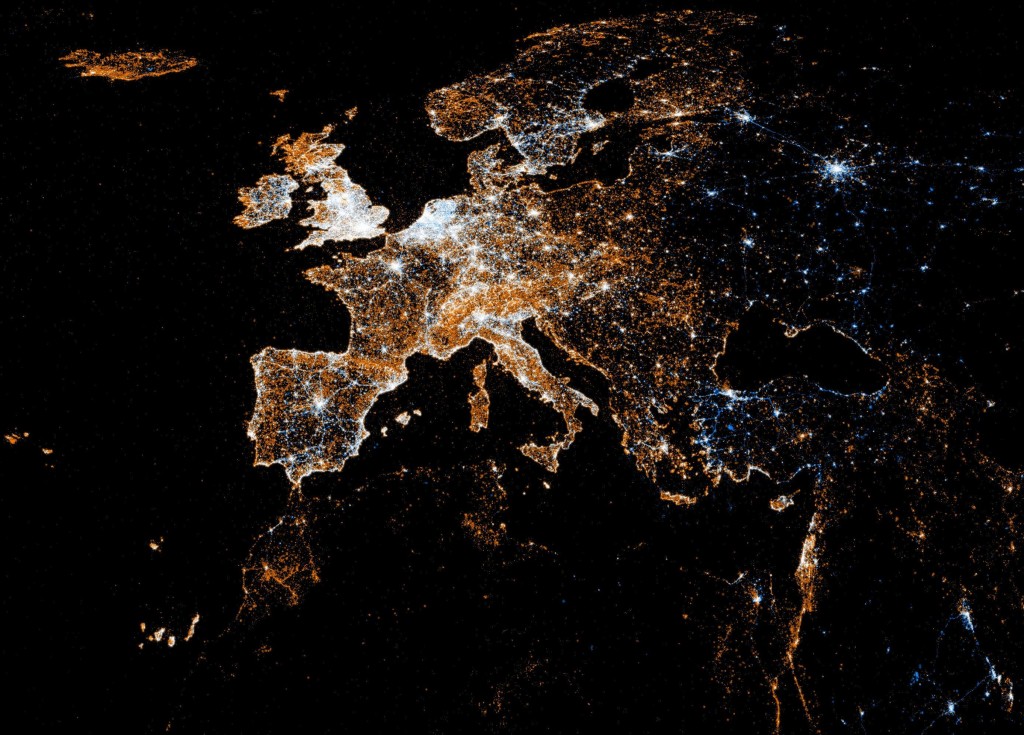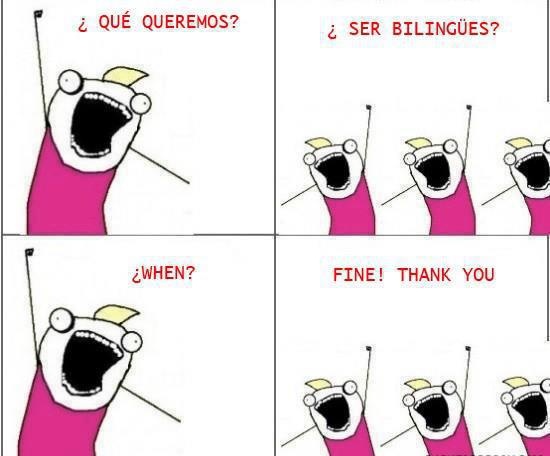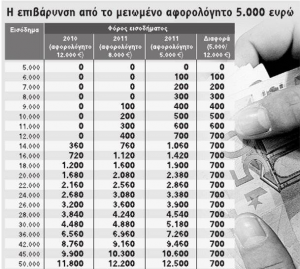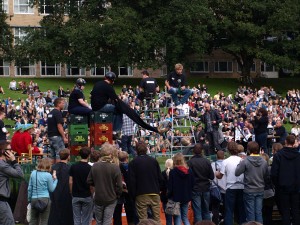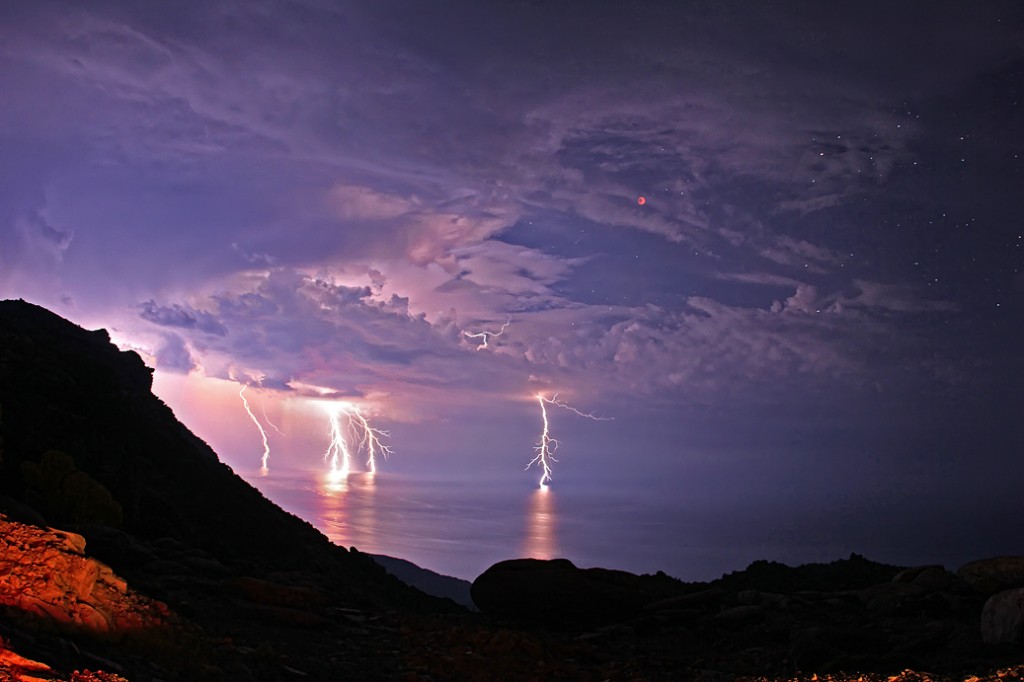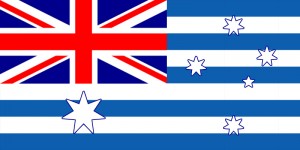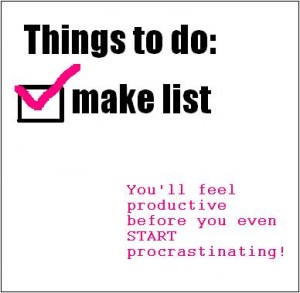This post is a combination of two fantastic pieces of work: Daphne’s article on Erasmus+ she wrote a few months ago which comprises the bulk of this post, and Giorgi’s collection of Greek organisations that run European Erasmus+ projects that is a bit more comprehensive than the one Daphne put together. You will find that list at the bottom of the article.
It can be a bit difficult to navigate through the vast, decentralised and chaotic field of European Youth Programs. That and the fact that lot of it can sound too good to be true sometimes might discourage potential participants. Stick with it: it is true! The European Union’s allocation of funds might certainly be questionable in some areas (let’s not go there at this time, you know exactly what I’m talking about ), but there’s no doubt they’re investing tons of money in education and the future with Erasmus+.
Not all of it finds its way to the right hands, which could be said about all sort of freebie European Union money that’s come our way. However, you could definitely make the case that the same holds true for money as a concept in more general terms. But I digress—sorry, difficult to resist.
These big investments are part of a bigger picture, a plan so devious, its scope so ambitious, its goal so far-removed, it could only ever have been spawned in a bright, sterile meeting room in Brussels, in the incandescent depths of the HQ of the European Commission itself. Their goal, behind all of these lifelong-learning and informal education bells and whistles, is the creation of nothing less than a common identity among young Europeans, a veritable European identity for the people who will have to deal with this shitstorm of gargantuan proportions heading our way, the true proportions of which we’re just starting to understand. That’s us, by the way.
I can’t tell if it’s working or not yet, or if perhaps creating this identity could be forming a barrier against the millions of non-Europeans that have started once again to enter European societies. But it can work; these programs teach tolerance and coexistence, after all. I do believe identifying as European can also mean accepting as European people who previously were not. It’s not, or at least it shouldn’t be, a limited-membership club. It wasn’t so in the past, and there’s no reason it should be now. That’s not how I look at peoples and nations at least and I’m glad I’m not alone.
Anyway. If we want to pull through this, all of this, as best we can, we need (informally) educated, internationally-oriented, risk-taking, adaptable and sensitive young people with a spirit of co-operation and participation. Erasmus+ programs are incredibly good at inspiring all these qualities in participants, and more.
Ahem. This was supposed to be “just” a guest post. With this introduction of mine I was certainly planning to be shorter, I leave you to them. I hope this information proves useful to you. In fact, it can be quite life-changing, if you want or can allow it to.
Erasmus+ and youth opportunities resources for Greeks and the general public
This post has been long overdue. Since my first youth exchange in June 2013, I’ve talked with an ever-growing amount of people about what I do abroad, how I managed to find these projects, how it’s possible to do so many of them if I’m always broke as fuck and what exactly do I even get from them.
The last conversation I had was with the guys from the coding course I attended this week, and some of them showed great interest in what I had to say, since I already know a lot about these things. I absolutely despise talking, I get nervous and awkward and am unable to explain things properly, so writing is a much better way to get all this information out there.
So finally, here it is. A resource post with all the info and organisations I know about that have to do with youth mobility. Please, feel free to comment under my post if you are part of/know an organisation that you believe should be included in the list! Of course, I recognize that even my knowledge is quite limited compared to people that are actively involved in Erasmus+ as part of an organisation.
First things first: What on earth is Erasmus+? (here is a bit more detailed page)
When people hear the word “Erasmus”, they instantly think that it’s all about the student mobility thing. Well, guess what. In short, Erasmus+ is the EU’s new programme for boosting skills and employability through education, training, youth, and sport. Before that there was Youth in Action.
The funding for the whole project is channeled to each country through the National Agencies. Through their pages you can find projects and information in your own language and contact them for inquiries.
So the lists that follow include NGOs that are either Sending (SO), Hosting (HO) or Coordinating (CO) organisations, or even all of the above! As copy-pasted from the programme guide, these mean:
- Applicant organisation from a Programme Country: in charge of applying for the mobility project, signing and managing the grant agreement and reporting. The applicant can be a consortium coordinator: leading a mobility consortium of partner organisations of the same country aimed at organising any type of student and staff mobility.
- Sending organisation: in charge of selecting students/staff and sending them abroad. This also includes grant payments (for those in Programme Countries), preparation, monitoring and recognition related to the mobility period.
- Receiving (Hosting) organisation: in charge of receiving students/staff from abroad and offering them a study/traineeship programme or a programme of training activities, or benefiting from a teaching activity.
- Intermediary (Coordinating) organisation: this is an organisation active in the labour market or in the fields of education, training and youth work in a Programme Country. It may be a partner in a national mobility consortium, but is not a sending organisation. Its role may be to share and facilitate the administrative procedures of the sending higher education institutions and to better match student profiles with the needs of enterprises in case of traineeships and to jointly prepare participants.
These may all sound kind of (or largely) unclear, so what essentially happens is, you find a SO in your country of residence, you apply for one of the projects they are offering (could be an EVS, or a training, or a youth exchange), you get accepted (or not), and you get to go to the country where that project is taking place. You’re hosted there by the HO. How to explain with clear, precise ELI5 wording what the CO part is still a bit unclear for me as well, so I would appreciate corrections and help here.
Personally, the crown and pride and glory of the Erasmus+ programme is European Voluntary Service, or EVS for short. It’s what I’ll be doing in the Netherlands from September 2nd.
Again, in short, if you are between 17 and 30, have spare time from two weeks up to a year in your hands, want to do something creative with your time, have no money to fund your interests, travel, meet other cultures and a horde of other like-minded people, EVS is for you. I strongly recommend it to people who are fresh out of university or school, have been unemployed for some time or just love travelling and experiencing new things. Or all of these! Important:
You will receive free accommodation, food, insurance and pocket money. The only thing you might have to pay is a small part of your travel costs.
Also important, you can only do EVS once in your life. If it’s a short-term project, you may be eligible to apply for a second EVS, but the time you spend abroad must be in total one year. Consider the possibilities carefully, because not everything is rainbows and unicorns. There are terrible projects out there, and people who just want to eat up the funding money. But don’t be discouraged like this – talk with people, do your research, ask me for recommendations and you’ll have the time of your life.
You can find ALL of the EVS projects here. You can search by country/town of preference and type of the project you want. The themes are extremely diverse. For example, I was a mentor of EVS volunteers who worked in TRAG, including therapeutic riding sessions for disabled people and of volunteers who worked in the offices of Greek Forum of Refugees.
In this European Youth page, you can also find other volunteering opportunities here, but I’ve never really participated in something like this so I can’t be of much help. Here you can find their Facebook page. I like organising things in lists, so I have put every page I’ll mention here in special list on Facebook. Good that it’s kinda worth it for something other than hoarding friends and stalking people.
Here we go then. It’s a clear list of NGOs that help you get involved with all the things I mentioned above!
Greek NGOs and other amazing groups of people:
This is not the best time for me to post this, because the Greek Nation Agency’s funding has been indefinitely suspended since April. You can probably discover the reason if you think about the state of the Greek political scene since the beginning of the year. What the suspension means is that there can be no projects implemented in the country whatsoever – no new EVS volunteers, no trainings, no youth exchanges, etc. The problems started way back of course, I remember the NA having financial difficulties for more than a year. BUT, you can still contact these NGOs to projects outside of the country – which I strongly advise you do. Most or all of these post regularly about new opportunites, be it short- or long-term. Keep in mind that even though I’m writing this in English so it can be accessed by everyone, a lot of the NGOs below have projects and information in Greek only.
You can also find some of these in the EVS database I linked above, if you search them by name.
I’ll start with this one as an honour, because I went to my first youth exchange through them. Everyone, meet
- Nuestro Mundo | Facebook | SO
Based in Crete. I went through them to Finland, for a youth exchange called Creative Photography in the Finnish Wilderness, along with Garret and Dimitris. Gotta thank him for this whole business, cause he was the first to discover these things and went through Nuestro Mundo to Olde Vechte in Ommen, the Netherlands for a youth exchange in March 2013. That’s incidentally the organisation I’ll be going to for EVS.
Continuing with the organisation I was (am?) an EVS mentor for.
- SCI Hellas | Facebook | SO, HO, CO
The Greek branch of Service Civil International. They will be my SO for going to EVS in Olde Vechte. They also organise a lot of workcamps which you can find out about in the page I linked here.
I know a couple of the guys involved here personally, and I love them. 😀
- Break the Couch | Facebook | SO
I think just their name is motivating in itself. Don’t be a couch potato.
Self-described as an informal group of ambitious people and filmmakers interested in new media & youth work.
I know their crazy dudette Antonia, who will never forgive me for taking away her tobacco.
- Citizens in Action | Facebook | SO, HO, CO
You can also participate in workcamps through them.
They organised the last training course I went to, in Skoulikaria, Greece. They’re pretty new but have great aspirations.
- Inter Alia | Facebook | SO, CO
I can’t remember how I found out about the rest of the NGOs, but probably through facebook shares or through people I met that knew them. Networking!
- You in Europe | Facebook | SO, CO
- Youth in Advancement | Facebook | SO
- Youthfully Yours | Facebook | SO
- United Societies of Balkans | Facebook | SO, HO, CO
- Hellenic Youth Participation | Facebook | SO
- CIVISplus | Facebook | SO, HO, CO
- KANE Κοινωνική Ανάπτυξη Νέων / Social Youth Development | Facebook | SO
- ELIX | Facebook | SO, HO, CO
(Of course, there’s a lot more, and quite a few that are just Hosting/Receiving NGOs — meaning they can’t send out Greeks but only receive foreigners as EVS volunteers)
Other European organisations:
I will start with my favourite, since I’m going there for EVS in a couple of days. For a whole year! Woo!!
- Olde Vechte Foundation | Facebook | SO, HO, CO
I strongly recommend attending at least one training/project happening in Olde Vechte, because you’ll start seeing your life change before your own eyes. I started with a youth exchange, and the place inspired me so much that I went back for a personal development training. From then on everything fell slowly into place and I decided it would be the best place for me to go to right now. There is an amazing amount of people who are working there, including the EVS volunteers and the trainers that come back several times per year to shake a bunch of young people up with their wise teachings.
OV is part of the Synergy Network, that organises trainings (either open calls or funded by the EU) for personal and professional development.
Right now the Spectrum Synergy project is ongoing.
Continuing in the Synergy business, I’ve also got to know some of the guys involved here. They’re real good! (They also have a wonderful partner page)
- Synergy Romania | Facebook | SO, CO
Moar Synergy. Their team has some amazing members and I’ve wanted to participate in some action with them for a long time, but I never got the chance. Soon, I hope!
- Syncro – Synergy Croatia | Facebook | SO, HO, CO
Never had to do anything with these guys but I’m pretty sure they’re awesome too.
- Synergy Bulgaria | Facebook | SO, HO, CO
Welp, there’s also the Greek one. Starring my favourite mouse on their fb page.
- Synergy Group Greece | SO
Another NGO that is involved with Synergy and a long-term wish of mine to get involved in. Hungary.
- Egyesek Youth Association | Facebook | SO, HO, CO
More Balkan stuff, specifically Bulgarian. I went back and forth so many times in 2014 that it will always be in my heart, even though I wasn’t closely involved with any NGO there. Most of the info is in Bulgarian.
- Balkan Kids| SO, HO (Hey David :D)
- CVS Bulgaria | Facebook | SO, HO, CO
- Suddenly I’ve forgotten half of the NGOs I got to know there. Ok. There’s still the EVS database.
Czech. Got to know through Šárka. 🙂
- Brno Connected | Facebook | SO
Cyprus! I visited (and was hosted at the volunteer’s places) both of them when I was in Nicosia (thanks to Toni :D) and later got to know Iliana from YEU in a training course in Bulgaria. Small world!!
- Nautilos SAR | Facebook | SO, HO, CO
- YEU Cyprus | Facebook | SO, HO, CO
Ok. This is getting really long, so I’ll now link to some more general resources which post about trainings all over.
First, here are some facebook groups (not my favourite thing because there’s too many posts):
Again, there’s quite a lot more of them, once you get involved they’ll start popping out like daises.
And some more pages and websites that can help you get into things.
Edit 31.08.2015: Panagiotis prompted me to add this one, it seems quite promising and I had been looking for something like it for a long time.
You can basically search for upcoming projects based on where you reside and where and when you want to go.
A network of eight Resource Centres working on European priority areas within the youth field. As part of the European Commission’s Training Strategy, SALTO-YOUTH provides non-formal learning resources for youth workers and youth leaders and organises training and contact-making activities to support organisations and National Agencies within the frame of the European Commission’s Erasmus+ :Youth in Action programme and beyond.
The Alliance of European Voluntary Service Organisations is an International Non-Governmental Youth Organisation that represents national organisations which promote intercultural education, understanding and peace through voluntary service.
The European Youth Foundation (EYF) provides assistance and funding for youth activities which promote human rights, democracy, tolerance and solidarity.
Facebook:
- Hellenic Youth Participation
- Youthfully Yours GR
- Προγράμματα Aνταλλαγής – Youthnet Hellas!
- Elix/ Ελιξ- Προγράμματα Εθελοντικής Εργασίας
- Youth in Advancement 18plus.gr
- Citizens in Action
- Think Positive
- United Societies of Balkans
- System & G – Greece
- You in Europe
- SCI Hellas
- Erasmus+ Youth Greece
- Εrasmusplusyouth
- Εν Γνώσει
- Horizonsforyouth
- Greece in Action
- KANE Κοινωνική Ανάπτυξη Νέων / Social Youth Development
- UNESCO Youth Club of Thessaloniki
- E.A.S.T.
- Be pART
- Breaking The Borders
- Association of Intercultural Communities
- Youth for Exchange and Understanding
- interaliaproject
- Break the Couch
Sites:
- Ευρωπαϊκή Εθελοντική Υπηρεσία
- http://erasmusnow.com/
- Eurodyssey
- The SALTO-YOUTH Resource Centres provide
- Nuestro Mundo

